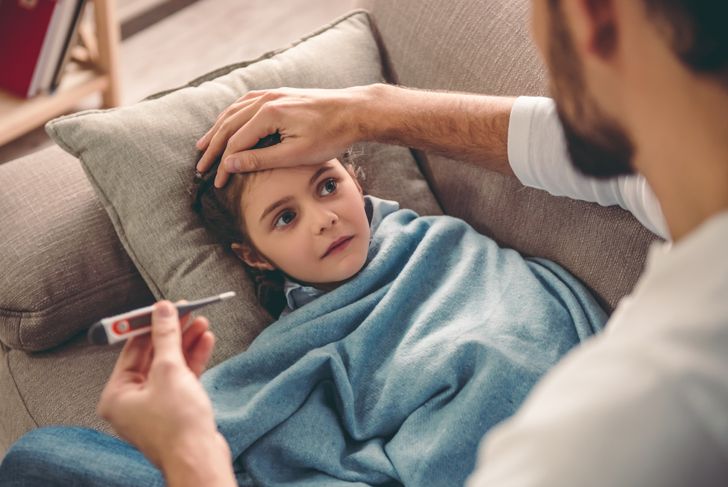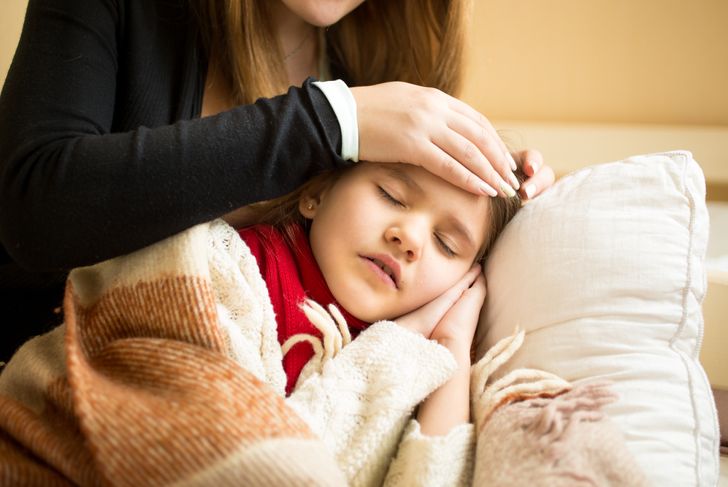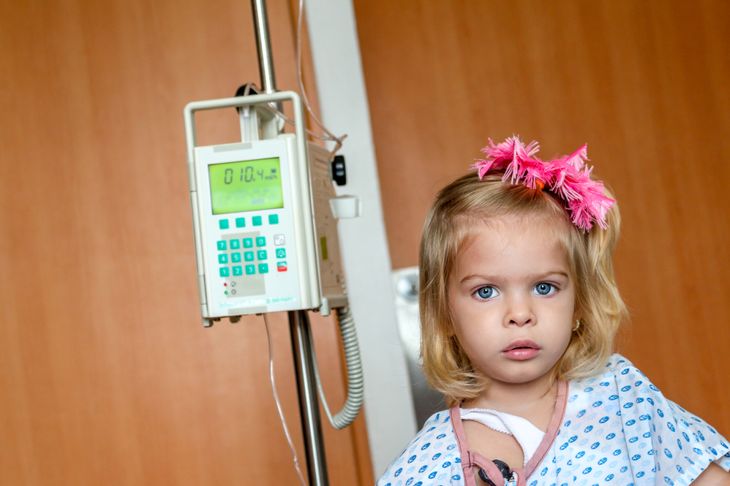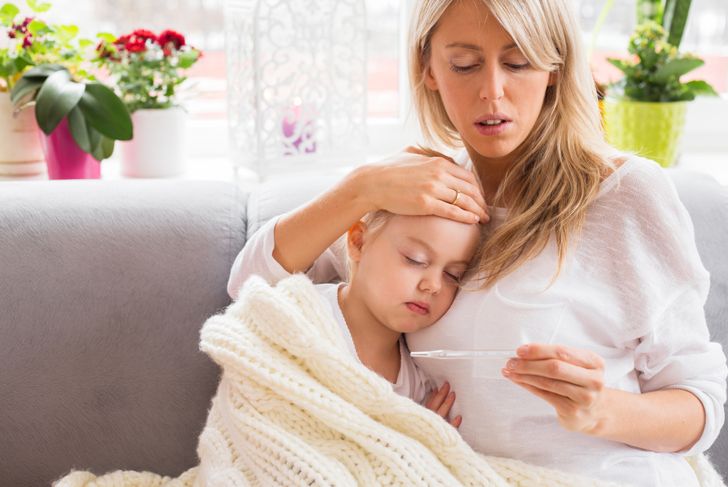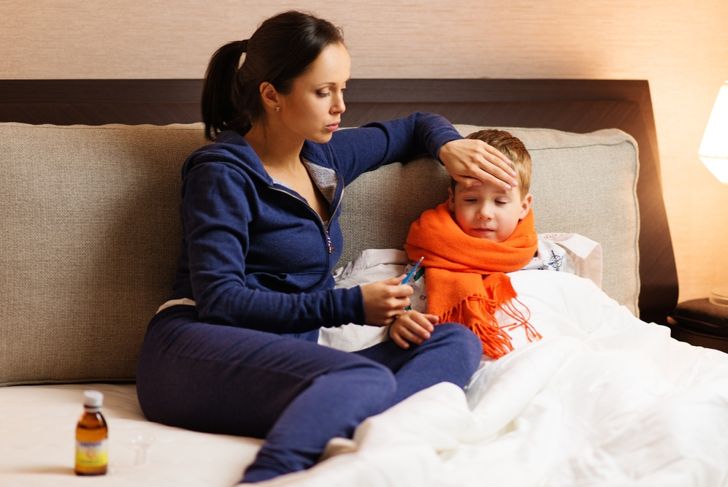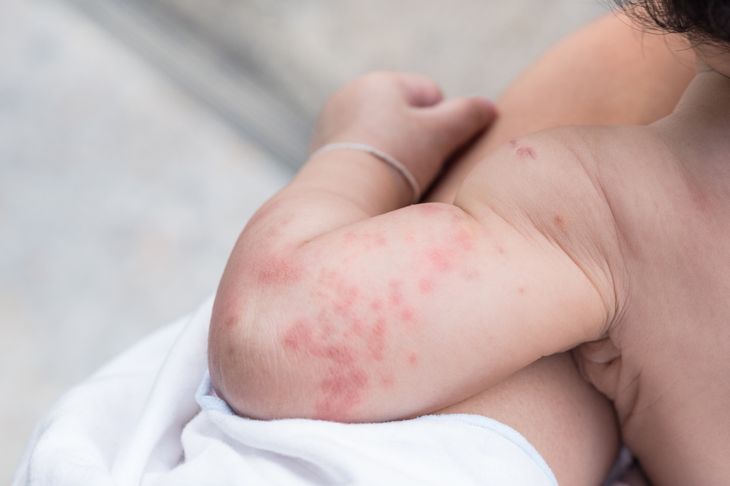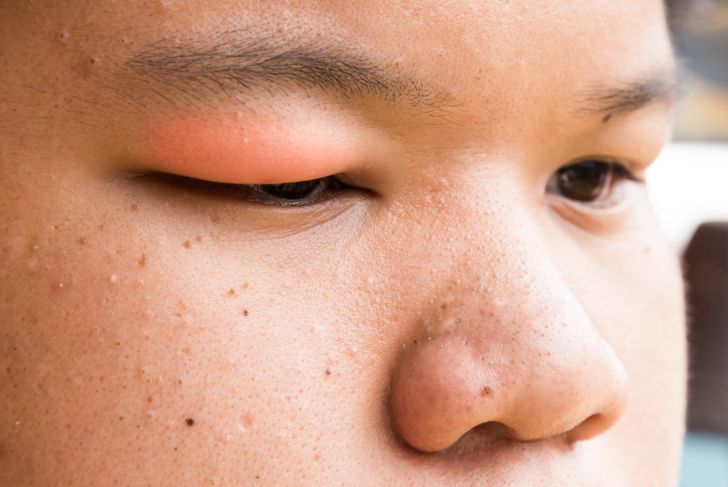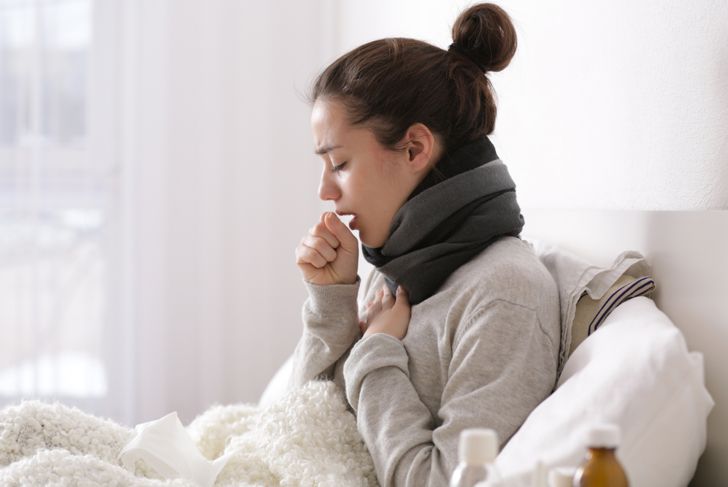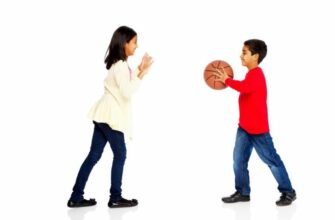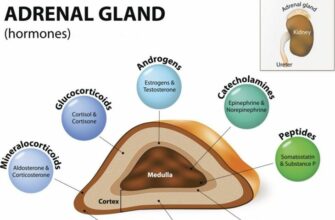Roseola is a type of viral infection that mostly affects young children. It is characterized by a fast onset, meaning that symptoms develop very rapidly. Most patients are between 6 and 24 months old, although older children and even teenagers may become infected. There are different causes of roseola, but in most cases, the virus herpesvirus 6 is the culprit. There are difficulties in determining how roseola spreads, but it is believed that it can spread from person to person. Find out the top 10 symptoms of roseola.
High Fever
The main indication of roseola is a fever, and usually a high fever that develops fast. This type of fever is often referred to as a sudden fever. Roseola patients often experience fevers of up to 100.4F or above. Note that for very high fevers, medical attention should be sought immediately. A fever is the body’s response to the presence of an infection or an invading bacterium. Besides a fever, your child might experience a sore throat or a cough. Treat a fever by ensuring plenty of rest and a sufficient intake of fluids.
Swollen Glands
Depending on the type of infection and the age of the patient, the extent of the experienced symptoms may vary. In most cases, however, swollen glands and lymph nodes can be observed. Swollen lymph nodes are an indication that the body is dealing with an infection or illness. They are mostly found in the neck, armpits, groin, and behind the ear. You can check for swollen lymph nodes by gently massaging the area with your fingers. To make sure that the illness is in fact roseola, look for a rash that develops after a fever, as well as fatigue and irritability.
Irritability
Irritability is one of the main signs and indications of roseola and is especially indicative of the condition if it appears in small children. Children that become affected with roseola often appear irritable and fussy, and may not behave as usual. This is caused by the symptoms that they are facing, which may affect their bodies in different ways. The results are a child that might not respond well to verbal commands and is more likely to be upset. To help the patient feel better, attend to their symptoms to improve comfort.
Runny Nose
Roseola can cause a wide range of symptoms to appear that mimic the common cold or flu. One of such symptoms is a runny nose, which may develop in conjunction with a cough. A runny nose is caused by your body as it tries to remove any bacteria that could be hiding in the nostrils or the nasal passage. To treat a runny nose, make sure the child gets plenty of water to keep the production of mucus continuous and smooth. Moreover, you may try certain over the counter medicines to help ease symptoms. If you also develop a high fever, contact your doctor.
Mild Diarrhea
In some cases – but not all – roseola may cause mild diarrhea to appear for a short period. While this symptom isn’t dangerous or worrisome, it can cause discomfort for the patient. Moreover, diarrhea might make it difficult to keep down foods and liquids, so it is important to treat it carefully. When it comes to remedying diarrhea, it is recommended to take small sips of water at first to ensure hydration and a proper healing of the stomach. Then, you can slowly add bland solids into the mix, including crackers and white bread.
Rash
One of the most recognizable symptoms of roseola is a rash, which usually develops after a fever. In most cases, a rash will appear after the fever has completed subdued or gone down. To recognize a rash that is caused by roseola, look for patches of small pinkish-red spots that appear in the chest, stomach, and back. In some cases, these may also be present in the face and neck, or the arms. What distinguishes roseola rashes from others is that they don’t usually itch, and aren’t painful. In any case, it’s important to consult your doctor if you notice anything out of the ordinary.
Swollen Eyelids
One of the more unusual symptoms you might observe in an infected child is swollen eyelids. Most people won’t experience this symptom, but those who do will often have the appearance of someone who has just woken up after a long night’s sleep. Swollen eyelids can usually be seen accompanied by other symptoms such as a fever or rash. It’s good to remember that there are a large number of conditions that can cause a child to have swollen eyelids, so it’s important to look out for other symptoms as well. It might help to apply a warm compress over the eyes.
Decreased Appetite
You might notice your child consuming less food during the onset of the infection. This is a common response by their bodies as they fight off the infection. Overeating can be energy-consuming, so the body eats as little as possible. However, it’s important to remember to supply the body with sufficient amounts of nutrients, so do n’t forget to follow a tight eating schedule. In most cases, children recover within a week, and in general, there’s no need for further medical attention. However, if you notice symptoms getting worse or a high fever, contact your doctor.
Fatigue
Fatigue is another symptom that appears in illnesses and infections of the body that occurs because our body is busy fighting off invading bacteria, and therefore consumes larger than normal amounts of energy. Moreover, younger children do not have bodies that are highly developed, and they might not have the same energy levels as adults. That’s why fatigue can be especially troubling for them. In most cases, rest is the best remedy, especially when accompanied by other prescribed treatments. It’s important to allow the body to heal from the infection, even though the child might want to go outside and play.
Cough
Your child might develop a cough during his or her illness. A cough is usually one of the rarer symptoms of roseola, and it might even occur in children under the age of six months. Luckily, newborn babies aren’t at risk of developing resole because they have plenty of antibodies given to them by the mother that protect them from infections. However, as the child gets older, their immune system weakens and the risk of infection increases. If you notice your child coughing, make sure to check that he or she can breathe comfortably; if symptoms worsen, contact your doctor.

 Home
Home Health
Health Diet & Nutrition
Diet & Nutrition Living Well
Living Well More
More